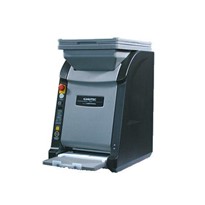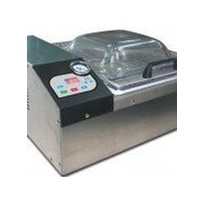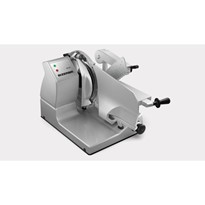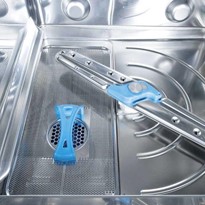Why a Japanese Sushi Machine is a Superior Investment Compared to a Chinese-Made Sushi Machine
Sushi is one of the most popular global cuisines, celebrated for its intricate presentation and delicate flavors. As demand for sushi continues to grow in various markets, including restaurants, grocery stores, and catering services, sushi-making machines have become essential for businesses seeking efficiency and consistency in production. When choosing between a Japanese sushi machine and a Chinese-made one, the decision ultimately revolves around quality, precision, durability, and long-term value. Here's why a Japanese sushi machine is a superior investment over a Chinese-made counterpart.
1. Heritage and Expertise
Japan is the birthplace of sushi, a culinary art form that requires precision and craftsmanship. Japanese manufacturers have a long history of producing high-quality sushi-making equipment, drawing from centuries of sushi-making tradition. Many Japanese companies specialize in designing machines that mimic the artisanal techniques used by sushi chefs, ensuring that the machines produce sushi of a high standard.
This deep-rooted connection to the sushi-making craft gives Japanese sushi machines an edge in terms of design, engineering, and innovation. In contrast, Chinese manufacturers don't have the same level of expertise or history in sushi craftsmanship, which can sometimes reflect in the quality and reliability of their machines. Chinese machines are copied from Japanese machines with no regard for intellectual property or propriety designs. The result is a confusing mix of ideas that miss the mark in production in quality and efficiency.
2. Superior Quality and Precision
Japanese sushi machines are known for their precision. When making sushi—whether it's nigiri, maki, or onigiri—consistency in shape, texture, and flavor is crucial to meet customer expectations. Japanese manufacturers invest heavily in research and development, ensuring that their machines produce sushi that meets the highest standards of appearance and taste.
These machines are designed with high-grade materials, advanced technology, and meticulous attention to detail, resulting in reliable and consistent output. On the other hand, Chinese-made sushi machines, while cheaper, don't achieve the same level of precision, leading to inconsistencies in product quality. This can be especially problematic for high-end sushi establishments where attention to detail is paramount.
3. Durability and Longevity
The durability of Japanese machinery is renowned across various industries, and sushi machines are no exception. Built with superior materials and cutting-edge engineering, Japanese sushi machines are designed for long-term use with minimal maintenance. They are built to withstand the high demands of busy kitchens, offering reliable performance over many years.
While Chinese-made sushi machines may have a lower upfront cost, they use lower-quality materials that can't withstand the rigors of high-volume sushi production. This could lead to frequent breakdowns, increased maintenance costs, and a shorter lifespan. In the long run, the cost of repairs and replacements will outweigh the initial savings from purchasing a cheap machine.
4. Technological Innovation
Japan is a leader in technological innovation, particularly in robotics and automation. Many Japanese sushi machines incorporate the latest advancements in automation, artificial intelligence, and robotics to ensure that the machines are as efficient and user-friendly as possible. For example, some machines can automatically adjust to different types of rice or adapt to different environmental conditions to maintain optimal sushi quality.
Chinese manufacturers may offer sushi machines with copy features, but they lag behind in cutting-edge technology. Japanese manufacturers continually push the boundaries of sushi machine innovation, offering features that can improve productivity, reduce waste, and enhance the overall sushi-making process.
5. Support and After-Sales Service
When investing in high-quality machinery, after-sales service and support are critical factors to consider. Autec has established its reputation for providing excellent customer support, offering training, maintenance, and repair services to ensure that our machines continue to operate at peak performance. Autec has a network of service centers and technicians who can provide timely support when needed.
In contrast, Chinese manufacturers don't have the same level of reach or commitment to after-sales service. Businesses that purchase Chinese sushi machines will struggle to find support, particularly if they are located outside of China. This leads to longer downtimes and disruptions in production, negatively impacting business operations.
6. Brand Reputation and Trust
Japanese brands, particularly in the culinary and machinery sectors, are often associated with quality, reliability, and precision. Brands like Autec have earned a reputation for excellence in sushi-making machines, and their products are trusted by top sushi chefs and restaurants around the world. This reputation translates into peace of mind for buyers, knowing that they are investing in a machine that is backed by years of innovation and proven success.
Chinese brands are struggling to build the same level of trust and recognition in the sushi machine industry. For many businesses, the lack of a proven track record is a significant risk when making such a substantial investment.
7. Long-Term Cost Efficiency
While the initial cost of a Japanese sushi machine is often higher than that of a Chinese-made machine, the long-term cost efficiency is significantly better. The durability, low maintenance requirements, and consistent performance of Japanese machines lead to reduced operational costs over time. Additionally, the high-quality output of Japanese machines can help businesses maintain a premium product, leading to higher customer satisfaction and repeat business.
Chinese-made machines, with its lower upfront cost, incur more frequent repairs and maintenance expenses, require more downtime, and compromise product quality—all of which will outweigh the initial savings.
Conclusion
When it comes to sushi machines, the decision between Japanese and Chinese-made products should be based on more than just initial cost. Japanese sushi machines offer superior precision, durability, technological innovation, and after-sales support. They are built with the understanding of sushi as an art form, designed to produce high-quality results consistently, and backed by decades of expertise in the sushi-making industry.
For businesses that prioritize quality, long-term reliability, and brand reputation, a Japanese sushi machine is a sound investment that will pay off in terms of both performance and profitability over time.




-375x300-205x205.jpg)
















